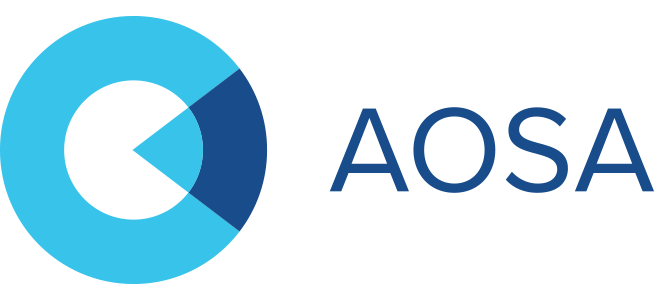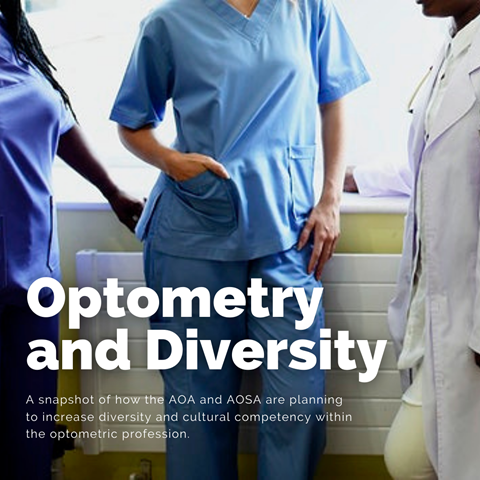“Failure” feels like a dirty word, something no student dares to mention for fear of jinxing themselves. It’s like the boogeyman, looming in the shadows, preying on the fear that—despite all our effort, time and money—it was all for nothing … and that light at the end of the tunnel dims. No one speaks of failure for fear of summoning it, yet it creeps up on us at the worst possible time and punches us while we are down. A quiz grade here, a skills test there, an exam that was SO CLOSE to passing, but didn’t quite make it; feeling like no matter what you do, you will never improve, that you are doomed to never be successful.
These feelings are entirely normal, especially for students in high-intensity academic environments where failure can have serious financial consequences beyond the emotional toll. Optometry school is already stressful enough as it is, and the entirely legitimate fear of failure simply adds to it. Because we can’t wave our hands and magically hypnotize all of our professors into giving us As, the question then becomes: What can we do about it?
It’s helpful to think of failure as a disease state. It does, after all, induce all the hallmark signs and symptoms of anxiety and depression, potential causing headaches, nausea, rapid breathing, acid reflux, body aches, insomnia, fatigue and a weakened immune system (thanks, Cortisol, for the memories!). It also can frighten classmates into steering clear of the affected individual, as if it were somehow contagious (news flash: it isn’t). And because we’re thinking of failure as a disease state, that means we’re going to need:
- Adifferential diagnosis – finding the root cause(s).
- Atreatment plan – a step-by-step outline of how to recover.
- Prophylaxis –a way to prevent it from happening in the future.
Okay, so you’ve failed your first quiz, exam, skills test or some other official assessment. Take your time to experience those emotions (as there will be emotions), and then your first step is to contact your professor, sooner rather than later. Your job when meeting with your professor is to go over all the concepts covered in that assessment and find out WHAT HAPPENED. If you misunderstood the information, your next step will be to arrange for tutoring or additional office hours to supplement your time in class. Do not hesitate with this and make sure to go over concepts every week leading up to the next assessment. If you are having difficulty memorizing the sheer volume of material, then you will need a different kind of help; you will need to work with your professor to help orient yourself around the material and get a good outline in your brain established that you can then build on with details (you also may need assistance developing study skills; if so, reaching out to your school’s academic support office will be your next step). If you understand all the material and are able to recall it in front of the teacher but have difficulty with the format of exams and showing what you know on a high–stakes exam, your next step will be working with your professor and your school’s academic support office on test–taking strategies, potentially even working with your school’s mental health services personnel on dealing with anxiety and blanking within the testing environment.
In any and all of these scenarios, it is CRITICAL to get this taken care of AS SOON AS POSSIBLE. It is ABSOLUTELY possible to recover from a stumble (i.e., a quiz or a single exam) without it affecting your grades too much, but if it builds you can risk failing a course, which can be devastating depending on the policies of your school. This is where the prophylaxis comes in. Obviously, no one is planning to fail, but when it comes to optometry school, where the stakes are understandably high, it is important to plan for the worst and hope for the best. If you are afraid of failure, for any reason, at any time, make an appointment with a member of your school’s administration and talk to them about your fear and your reason for fearing. Listen to their advice, as they will point you in the right direction—they don’t want you to fail any more than you want to. They also can tell you what your school’s policies are for remediation and for taking a leave of absence if one is needed. Because every case is different, it is critically important to get this personalized assessment and to build a game plan that will help you succeed in your program.
Please note that in this entire essay, we have not yet discussed how to handle the emotional toll that comes with failure or the fear of failure. This is because the means of achieving mental health is different for each person and what works for one individual may or may not work for another. Whatever it is that you need to do to pull yourself together, then that is what you need to balance with your studies. My only piece of advice in this arena is more of a request: please, please, PLEASE do NOT hide your failure. Yes, it is embarrassing, and no, you do not need to advertise it, but recognize that when an academic community functions within a culture of hiding failure, it makes it so much more difficult to learn from it and to recover from it. Instead, show the world your strength and resilience, for your failure is not what defines you—you are defined by how you choose to overcome it.






